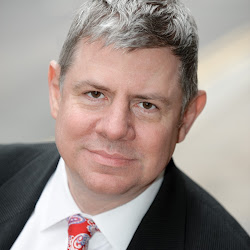WHY ONLY SORBONNE-EDUCATED, LITERATURE PH.D.S SHOULD CUT YOUR HAIR

You get a haircut every few weeks. Everyone does. Men, women, children. Even balding men need a trim occasionally (as I’m finding out, sadly).
But what if I told you that you’ve been doing this all wrong?
What if I told you that your barber, or hairdresser, is terribly under-qualified. That you have been risking your hair — which is just a few centimeters from your brain, after all — to an under-educated, under-trained amateur.
What if I insisted you were making a huge mistake in your barber choice. Instead of your current choice, you should choose another kind of haircutter. A better one. This one should be qualified. He (or she) should be properly educated. He should hold a Ph.D.
In Comparative Literature.
From the Sorbonne.
If I told you that, what would you say?
You’d say I was crazy.
Because having a Comparative Literature degree from a French university has absolutely nothing to do with how you perform at cutting hair. Of course.
But wait a second. Such “crazy” advice is given to us every day. Very smart people, with net worths of millions of dollars… even billions of dollars… regularly follow similar advice.
I’m speaking about the hedge-fund industry. This is an industry that manages almost a trillion dollars of civilization’s wealth. The role of the hedge fund is to produce “alpha” — a fancy way to say that it is asked to produce “market-beating returns.” If you are a wealthy person who, over her lifetime has earned ten million dollars, you prefer not to leave all your cash sitting in a bank, earning negative interest rates, after inflation. You want your wealth to earn a return. And so you give a portion of it to a hedge fund.
Thus the “hedge fund industry” plays an important role in the financial world.
You would think, wouldn’t you, that the people who run hedge funds would want to hire the most talented traders and analysts to work at their firm. You would think that hedge-fund customers would insist upon such a thing. You would think that hedge-fund hiring departments would scour the world, looking for smart people who have creative and interesting ideas about how to manage money — how to create those market-beating returns while controlling risk.
Except… none of this is true.
In fact, the world of hedge funds is bizarrely insular. If you do not live in New York, if you do not live in London, if you did not win the birth lottery by being born in an English-speaking country, if you did not go to Harvard, if you did not get a job at Goldman… well, then, good luck getting a job at a hedge fund. I suppose you can apply, but… don’t let the door hit you on the way out.
Which is strange, when you think about it, because all those qualities: where you live, what language you speak, what name is on your diploma, whether you held a job at Goldman Sachs — all of those things are entirely unrelated to how you will perform as a trader or investor.
In other words, the hedge-fund industry operates as if it thinks all hair-cutters must hold Literature Ph.D.’s from the Sorbonne.
Everyone in the industry knows this is absurd — that the performance of any new hire is orthogonal to where a person went to school, or even if he did; or to where a person held her last job.
I’ll take this a step further. Really smart hedge-fund operators ought to know that hiring one more me-too Harvard ex-Goldman prop trader will generate, at best, me-too performance. Every Goldman clone will have similar “ideas,” will look in the same places for financial opportunities, will pile into the same lame trades, will follow the same stampeding herd.
Here’s an idea. What if we hired hair-cutters who were actually good at… cutting hair?
My company, Collective2, has a mission. It’s a simple one. We are going to destroy the entire hedge-fund industry. We are going to tear it down, burn it to ash, plow salt into its earth.
We think that anyone can generate alpha.
No, not that everyone can… simply that anyone might:
1. That guy in India, who didn’t win the lottery by being born near Manhattan, but who can code algos to predict market movements.
2. That doctor in Boston, who has a full time job helping humans live longer, and who has utterly no desire to work at a hedge fund, thank you very much; …but who notices that one particular pharma company’s sales reps seem to be applying high-pressure sales tactics, and who therefore decides to short its stock.
3. That Chicago-School economist, whose ten years of research have shown him that cartels inevitably collapse, and who therefore shorts oil futures, knowing that OPEC’s latest “production quota” announcement is just a bunch of hot air.
Here’s the thing about trading performance. It’s the one job in the world where it’s obvious who’s good at it, and who’s not. You simply look at the person’s track record. Nothing else matters. Not where a person lives. Not which company he worked at five years ago. The performance matters. That’s it. Period. Full stop.
Please read more here: https://trade.collective2.com/french-barbers
Source Collective2.com. Reproduced with permission.
This article is also concluded with 3 more quotes:
“… Don’t personify the markets. Anger is an interpersonal emotion. We are usually angry with someone because we believe that he or she has purposely tried to harm us. The markets may consist of people making trades, but it doesn’t make sense to make up imaginary relationships with the markets. There is nothing that is personal going on. You are merely making it personal, and taking setbacks personally, as if someone were out to wrong you. The people participating in the markets may engage in actions that thwart your goals, but their actions are not directed toward you personally. It is best to look at the markets as an abstract impersonal entity. Pretend you are playing a videogame. The more impersonal you can make trading, the better you will feel, and the more profits you’ll realize.” – Joe Ross (Source: Tradingeducators.com)
“There is a fundamental disconnect between the reality of trading and the academic and regulatory interpretation of how markets should work in a bubble. Unfortunately, too many traders get sucked into the complexities of academia and think that such intricacies are the ticket to their salvation. As always we come back to the notion that trading is a simple affair that is driven not by what the market does but by your reaction to it.” – Chris Tate
“By design, my trading system produces a highly asymmetric return with 80% of my total gains coming from 20% of my trades. Since the majority of profits from the system come from a minority of trades, missing out on just one could be a costly error as it could become one of the most profitable trades.” – VTI
www.tallinex.com wants you to become a successful trader
Traders’ realities: Trading realities


 Hot Features
Hot Features













